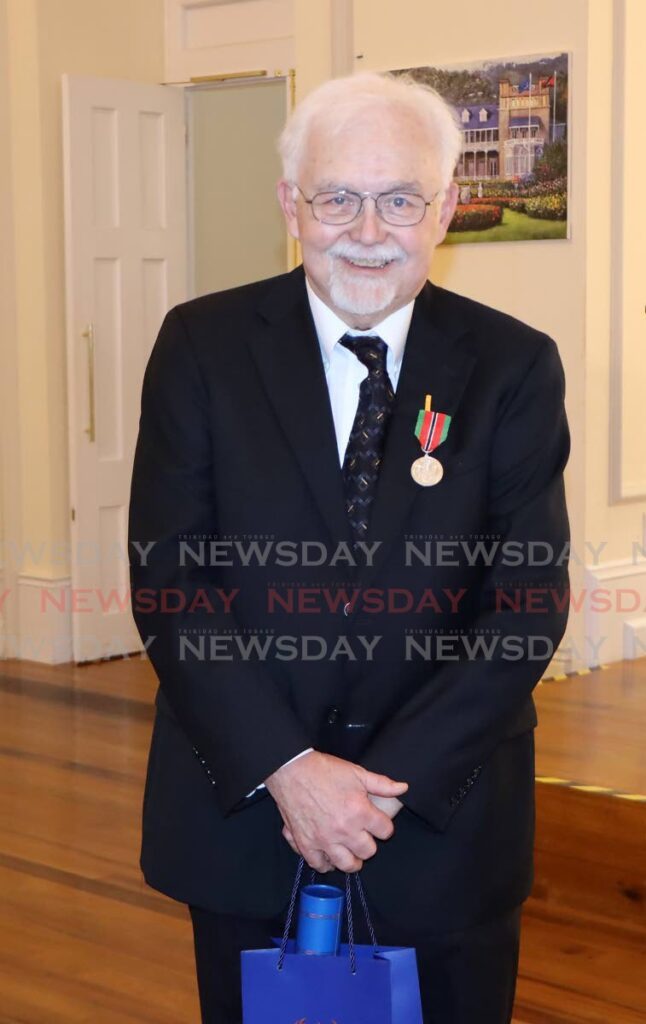The Funk in calypso

Ray Funk, a retired Alaskan judge, was presented with the Chaconia Medal (Silver) for his research into calypso, mas and pan by President Christine Kangaloo at President's House, on January 30. Mr Funk is one of only a few foreigners selected for a national award. It's possible that some citizens might not understand his selection.
His work is the result of a decades-long immersion into calypso culture and related Carnival developments.
Mr Funk, a ringer for a certain fried-chicken mascot, has never looked the part of a Carnival enthusiast. He is urbane, calm and curious, with alert eyes that suggest a detective, not a kaiso fan ready to indulge in misbehaviour.
But his award was given for an almost unprecedented level of cultural sleuthing, as he traced the slimmest of links between calypso recordings and the sparse documents available on the art form to create a deeply felt history of the earliest days of calypso performance with a welcome emphasis on its global impact.
Mr Funk was made an honorary fellow of the University of Trinidad and Tobago in 2006. His curiosity about folk music began when he volunteered to be a DJ at a public radio station, where he began investigating acapella African American gospel music.
In the 1980s, he began his immersion into calypso and in 1986, saw Gypsy and Sparrow perform at Brooklyn Carnival. By 1997, he was ready for the source event and arrived here to experience the calypso tents at their peak, shows that went on effortlessly for hours.
The kaiso detective always seemed to find forgotten alleyways of TT cultural endeavour. Not surprising, given that hundreds of calypsoes were created and performed every year, only to be discarded on Ash Wednesday.
Mr Funk has a special interest in the calypso craze of 1957, six months in the music of America when it seemed that calypso would push rock and roll aside. His fascination with the era resulted in Bear Records' Calypso Craze box set, featuring six CDs, a DVD featuring a rare film, Calypso Joe, and a 176-page book documenting a pivotal time in kaiso history.
Along the way, Mr Funk's investigations have also uncovered aspects of the global history of the steelband movement. He would contribute to Steelpan in Education, a book about the introduction of the instrument to the music curriculum of Northern Illinois University.
Returning TT culture to this country is not easy. In November 2020, George Maharaj had largely given up on offering this country his collection of 6,000 vinyl albums of TT and Caribbean recordings from 1939 to 1989.
Beyond Mr Funk's studied, thoughtful approach is a certain measure of cussedness, an unrelenting determination to repatriate TT's culture whether it appears to want it or not.


Comments
"The Funk in calypso"